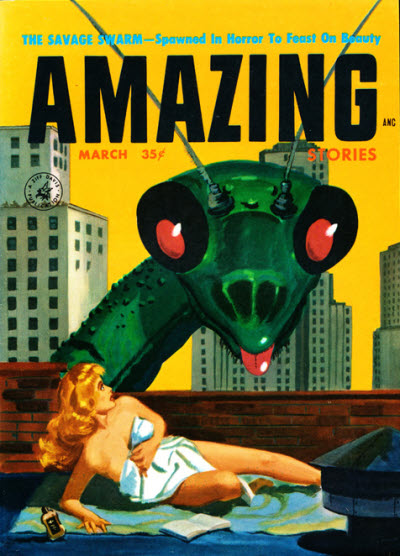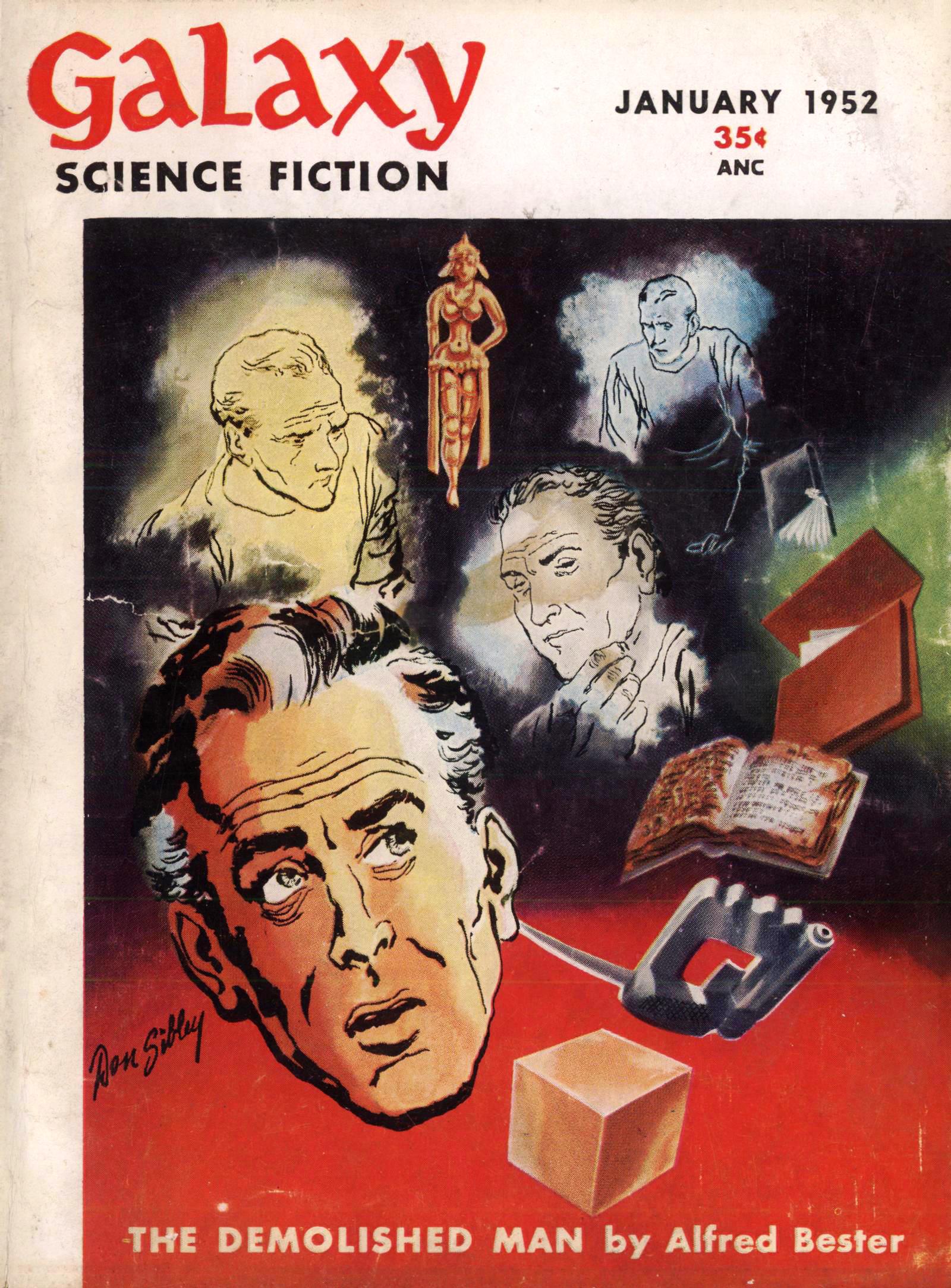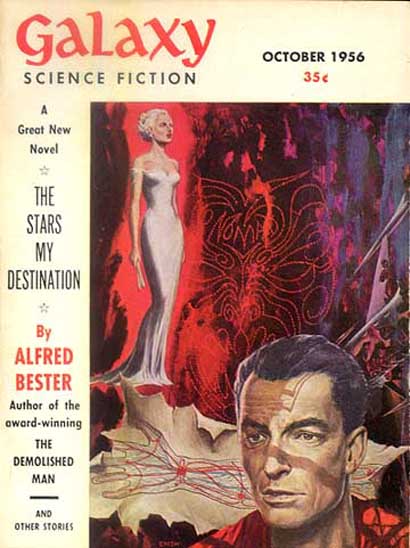|
Jeffty Is Five
"Jeffty Is Five" is a fantasy short story by American author Harlan Ellison. It was first published in ''The Magazine of Fantasy & Science Fiction'' in 1977, then was included in DAW's '' The 1978 Annual World's Best SF'' in 1978 and Ellison's short story collection ''Shatterday'' two years later. According to Ellison, it was partially inspired by a fragment of conversation that he misheard at a party at the home of actor Walter Koenig: "How is Jeff?" "Jeff is fine. He's always fine," which he perceived as "Jeff is five, he's always five." Ellison based the character of Jeffty on Joshua Andrew Koenig, Walter's son. He declared: Plot Jeffty is a boy who never grows past the age of five — physically, mentally, or chronologically. The narrator, Jeffty's friend from the age of five well into adulthood, discovers that Jeffty has the ability to access current versions of popular culture from the narrator's youth. His radio plays all-new episodes of long-canceled serial programs, b ... [...More Info...] [...Related Items...] OR: [Wikipedia] [Google] [Baidu] |
Harlan Ellison
Harlan Jay Ellison (May 27, 1934 – June 28, 2018) was an American writer, known for his prolific and influential work in New Wave speculative fiction and for his outspoken, combative personality. Robert Bloch, the author of '' Psycho'', described Ellison as "the only living organism I know whose natural habitat is hot water." His published works include more than 1,700 short stories, novellas, screenplays, comic book scripts, teleplays, essays, and a wide range of criticism covering literature, film, television, and print media. Some of his best-known works include the 1967 '' Star Trek'' episode "The City on the Edge of Forever" (he subsequently wrote a book about the experience that includes his original screenplay), his ''A Boy and His Dog'' cycle, and his short stories " I Have No Mouth, and I Must Scream" and " 'Repent, Harlequin!' Said the Ticktockman". He was also editor and anthologist for '' Dangerous Visions'' (1967) and '' Again, Dangerous Visions'' (1972). ... [...More Info...] [...Related Items...] OR: [Wikipedia] [Google] [Baidu] |
Doc Savage
Doc Savage is a fictional character of the competent man hero type, who first appeared in American pulp magazines during the 1930s and 1940s. Real name Clark Savage Jr., he is a doctor, scientist, adventurer, detective, and polymath who "rights wrongs and punishes evildoers." He was created by publisher Henry W. Ralston and editor John L. Nanovic at Street & Smith Publications, with additional material contributed by the series' main writer, Lester Dent. Doc Savage stories were published under the Kenneth Robeson name. The illustrations were by Walter Baumhofer, Paul Orban, Emery Clarke, Modest Stein, and Robert G. Harris. The heroic-adventure character would go on to appear in other media, including radio, film, and comic books, with his adventures reprinted for modern-day audiences in a series of paperback books, which had sold over 20 million copies by 1979. Into the 21st century, Doc Savage has remained a nostalgic icon in the U.S., referenced in novels and popular cultu ... [...More Info...] [...Related Items...] OR: [Wikipedia] [Google] [Baidu] |
Locus Online
''Locus: The Magazine of The Science Fiction & Fantasy Field'', founded in 1968, is an American magazine published monthly in Oakland, California. It is the news organ and trade journal for the English-language science fiction and fantasy fields. It also publishes comprehensive listings of all new books published in the genres (excluding self-published). The magazine also presents the annual Locus Awards. ''Locus Online'' was launched in April 1997, as a semi-autonomous web version of ''Locus Magazine''. History Charles N. Brown, Ed Meskys, and Dave Vanderwerf founded ''Locus'' in 1968 as a news fanzine to promote the (ultimately successful) bid to host the 1971 World Science Fiction Convention in Boston, Massachusetts. Originally intended to run only until the site-selection vote was taken at St. Louiscon, the 1969 Worldcon in St. Louis, Missouri, Brown decided to continue publishing ''Locus'' as a mimeographed general science fiction and fantasy newszine. ''Locus'' succeede ... [...More Info...] [...Related Items...] OR: [Wikipedia] [Google] [Baidu] |
Locus (magazine)
''Locus: The Magazine of The Science Fiction & Fantasy Field'', founded in 1968, is an American magazine published monthly in Oakland, California. It is the news organ and trade journal for the English-language science fiction and fantasy fields. It also publishes comprehensive listings of all new books published in the genres (excluding self-published). The magazine also presents the annual Locus Awards. ''Locus Online'' was launched in April 1997, as a semi-autonomous web version of ''Locus Magazine''. History Charles N. Brown, Ed Meskys, and Dave Vanderwerf founded ''Locus'' in 1968 as a news fanzine to promote the (ultimately successful) bid to host the 1971 World Science Fiction Convention in Boston, Massachusetts. Originally intended to run only until the site-selection vote was taken at St. Louiscon, the 1969 Worldcon in St. Louis, Missouri, Brown decided to continue publishing ''Locus'' as a mimeographed general science fiction and fantasy newszine. ''Locus'' succeede ... [...More Info...] [...Related Items...] OR: [Wikipedia] [Google] [Baidu] |
World Fantasy Convention
The World Fantasy Convention is an annual science fiction convention, convention of professionals, collectors, and others interested in the field of fantasy. The World Fantasy Awards are presented at the event. Other features include an art show, a dealer's room, and an autograph reception. The convention was conceived and begun by T. E. D. Klein, Kirby McCauley and several others. Previous conventions See also * World Fantasy Award References External linksWorld Fantasy Convention {{Authority control Fantasy conventions World Fantasy Awards, Convention 1975 establishments in the United States ... [...More Info...] [...Related Items...] OR: [Wikipedia] [Google] [Baidu] |
World Fantasy Award—Short Fiction
The World Fantasy Awards are given each year by the World Fantasy Convention for the best fantasy fiction published in English during the previous calendar year. The awards have been described by book critics such as ''The Guardian'' as a "prestigious fantasy prize", and one of the three most prestigious speculative fiction awards, along with the Hugo and Nebula Awards (which cover both fantasy and science fiction). The World Fantasy Award—Short Fiction is given each year for fantasy short stories published in English. A work of fiction is defined by the organization as short fiction if it is 10,000 words or less in length; awards are also given out for longer pieces in the Novel and Novella categories. The Short Fiction category has been awarded annually since 1975, though before 1982—when the category was instated—it was named "Best Short Fiction" and covered works of up to 40,000 words. It was then renamed "Best Short Story" until 2016, when it was renamed to the "Short Fi ... [...More Info...] [...Related Items...] OR: [Wikipedia] [Google] [Baidu] |
Hugo Award For Best Short Story
The Hugo Award for Best Short Story is one of the Hugo Awards given each year for science fiction or fantasy stories published or translated into English during the previous calendar year. The short story award is available for works of fiction of fewer than 7,500 words; awards are also given out for pieces of longer lengths in the novelette, novella, and novel categories. The Hugo Awards have been described as "a fine showcase for speculative fiction" and "the best known literary award for science fiction writing". The Hugo Award for Best Short Story has been awarded annually since 1955, except in 1957. The award was titled "Best Short Fiction" rather than "Best Short Story" in 1960–1966. During this time no Novelette category was awarded and the Novella category had not yet been established; the award was defined only as a work "of less than novel length" that was not published as a stand-alone book. In addition to the regular Hugo awards, beginning in 1996 Retrospective H ... [...More Info...] [...Related Items...] OR: [Wikipedia] [Google] [Baidu] |
Science Fiction Writers Of America
The Science Fiction and Fantasy Writers of America, doing business as Science Fiction and Fantasy Writers Association, commonly known as SFWA ( or ) is a nonprofit 501(c)(3) organization of professional science fiction and fantasy writers. While SFWA is based in the United States, its membership is open to writers worldwide. The organization was founded in 1965 by Damon Knight under the name Science Fiction Writers of America. The president of SFWA as of July 1, 2021 is Jeffe Kennedy. As of 2022, SFWA has about 2,300 members worldwide. Active SFWA members may vote for the Nebula Awards, one of the principal English-language science fiction awards. Mission SFWA informs, supports, promotes, defends and advocates for its members. SFWA activities include informing science fiction and fantasy writers on professional matters, protecting their interests, 26 (4): 40. and helping them deal effectively with agents, editors, anthologists, and producers in print and non-print media; 26 (4) ... [...More Info...] [...Related Items...] OR: [Wikipedia] [Google] [Baidu] |
Nebula Award For Best Short Story
The Nebula Award for Best Short Story is a literary award assigned each year by Science Fiction and Fantasy Writers of America (SFWA) for science fiction or fantasy short stories. A work of fiction is defined by the organization as a short story if it is less than 7,500 words; awards are also given out for longer works in the categories of novel, novella, and novelette. To be eligible for Nebula Award consideration a short story must be published in English in the United States. Works published in English elsewhere in the world are also eligible provided they are released on either a website or in an electronic edition. The Nebula Award for Best Short Story has been awarded annually since 1966. The award has been described as one of "the most important of the American science fiction awards" and "the science-fiction and fantasy equivalent" of the Emmy Awards. Nebula Award nominees and winners are chosen by members of SFWA, though the authors of the nominees do not need to be ... [...More Info...] [...Related Items...] OR: [Wikipedia] [Google] [Baidu] |
The Demolished Man
''The Demolished Man'' is a science fiction novel by American writer Alfred Bester, which was the first Hugo Award winner in 1953. An inverted detective story, it was first serialized in three parts, beginning with the January 1952 issue of ''Galaxy Science Fiction'', followed by publication of the novel in 1953. The novel is dedicated to ''Galaxys editor, H. L. Gold, who made suggestions during its writing. Bester's title was ''Demolition!'', but Gold talked him out of it. Plot introduction ''The Demolished Man'' is a science fiction police procedural set in a future where telepathy is common, although much of its effectiveness is derived from one individual having greater telepathic skill than another. In the 24th century, telepaths—called Espers or "peepers"—are integrated into all levels of society. They are classed according to their abilities. All Espers can telepathically communicate amongst themselves and the more powerful Espers can overwhelm their juniors ... [...More Info...] [...Related Items...] OR: [Wikipedia] [Google] [Baidu] |
Alfred Bester
Alfred Bester (December 18, 1913 – September 30, 1987) was an American science fiction author, TV and radio scriptwriter, magazine editor and scripter for comic strips and comic books. He is best remembered for his science fiction, including ''The Demolished Man'', winner of the inaugural Hugo Award in 1953. Science fiction author Harry Harrison wrote, "Alfred Bester was one of the handful of writers who invented modern science fiction." Shortly before his death, the Science Fiction Writers of America (SFWA) named Bester its ninth Grand Master, presented posthumously in 1988. The Science Fiction and Fantasy Hall of Fame inducted him in 2001. Life and career Alfred Bester was born in Manhattan, New York City, on December 18, 1913. His father, James J. Bester, owned a shoe store and was a first-generation American whose parents were both Austrian Jews. Alfred's mother, Belle (née Silverman), was born in Russia and spoke Yiddish as her first language before coming to A ... [...More Info...] [...Related Items...] OR: [Wikipedia] [Google] [Baidu] |
Novels
A novel is a relatively long work of narrative fiction, typically written in prose and published as a book. The present English word for a long work of prose fiction derives from the for "new", "news", or "short story of something new", itself from the la, novella, a singular noun use of the neuter plural of ''novellus'', diminutive of ''novus'', meaning "new". Some novelists, including Nathaniel Hawthorne, Herman Melville, Ann Radcliffe, John Cowper Powys, preferred the term "romance" to describe their novels. According to Margaret Doody, the novel has "a continuous and comprehensive history of about two thousand years", with its origins in the Ancient Greek and Roman novel, in Chivalric romance, and in the tradition of the Italian renaissance novella.Margaret Anne Doody''The True Story of the Novel'' New Brunswick, NJ: Rutgers University Press, 1996, rept. 1997, p. 1. Retrieved 25 April 2014. The ancient romance form was revived by Romanticism, especially the historica ... [...More Info...] [...Related Items...] OR: [Wikipedia] [Google] [Baidu] |



